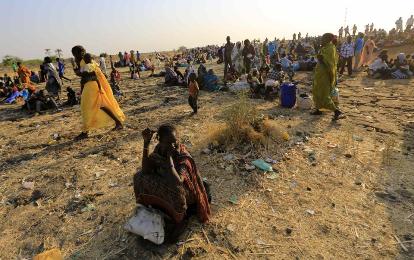Sudan may allow southern refugees to reclaim private sector jobs: official
February 25, 2014 (KHARTOUM) – Sudan’s humanitarian commissioner, Suleiman Abdel-Rahman Suleiman, has disclosed ongoing arrangements to return South Sudanese citizens to their previous jobs in the private sector before the 2011 secession and allow them to reside in any part of the country.

Suleiman announced that 13,000 southerners arrived in the White Nile, South Kordofan, and West Kordofan states, saying they have not yet accounted for additional numbers of Southerners who arrived in Sennar state on Sunday.
The commissioner did not rule out the possibility that several Southerners may have arrived in Khartoum state individually, stressing that they provide humanitarian services to the Southerners at the reception points on the borders in coordination with federal and state authorities and the Ministry of Interior.
He stressed that they will not compromise in receiving Southerners despite the difficult economic conditions, saying they will share their livelihood with them.
Conflict erupted in the capital, Juba, on 15 December following clashes between rival members of the presidential guards, quickly spreading throughout the country as troops loyal to South Sudan president Salva Kiir battled rebel forces aligned with former vice-president Riek Machar for control of strategic areas.
Forces loyal to both leaders are accused of committing human rights abuses during the conflict.
President Kiir was elected in 2010, with Machar as his deputy and running mate, achieving over 93% of the vote, but the relationship between the two has deteriorated since South Sudan became independent in 2011 as part of a peace deal that ended decades of civil war.
(ST)
